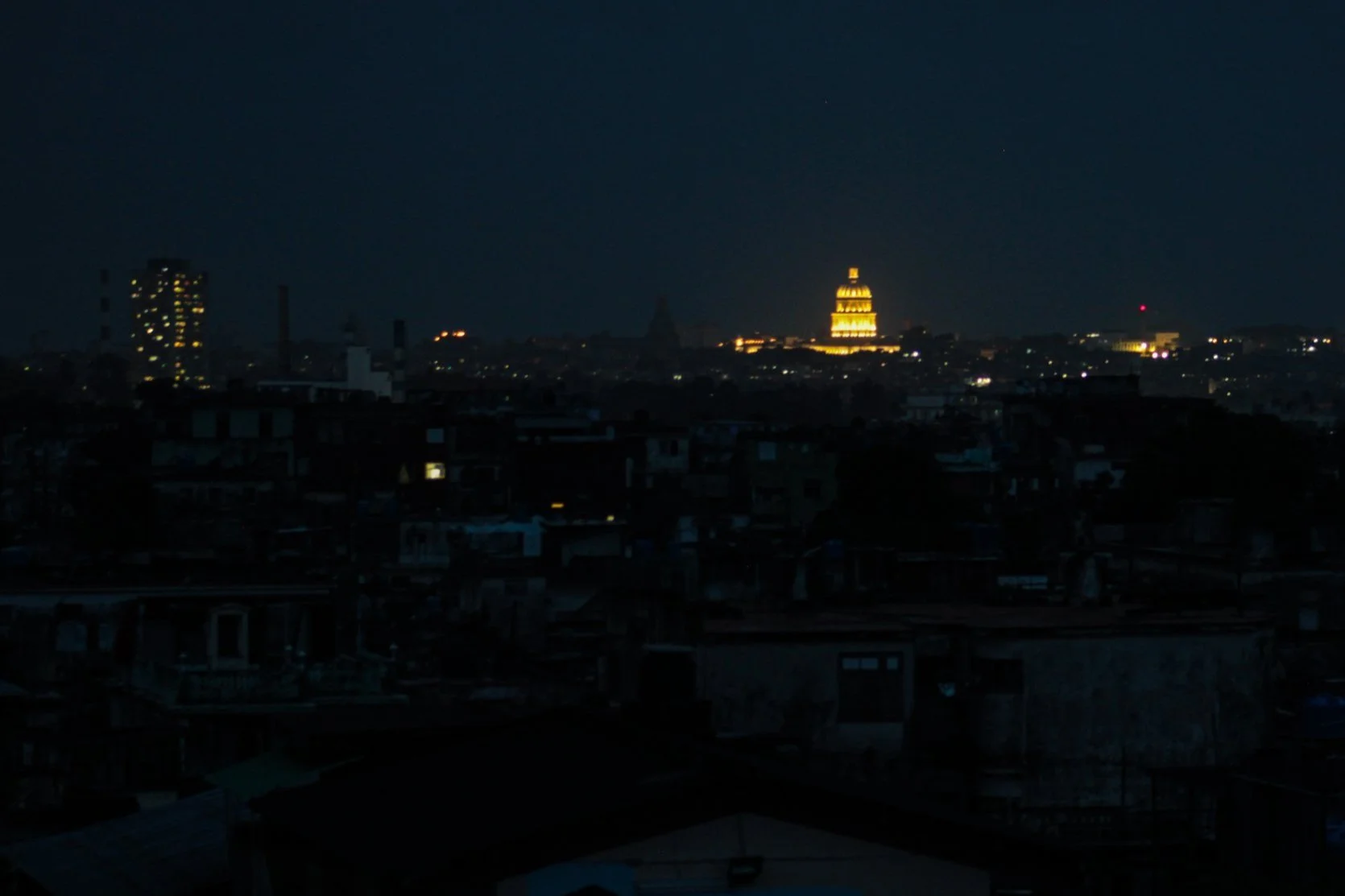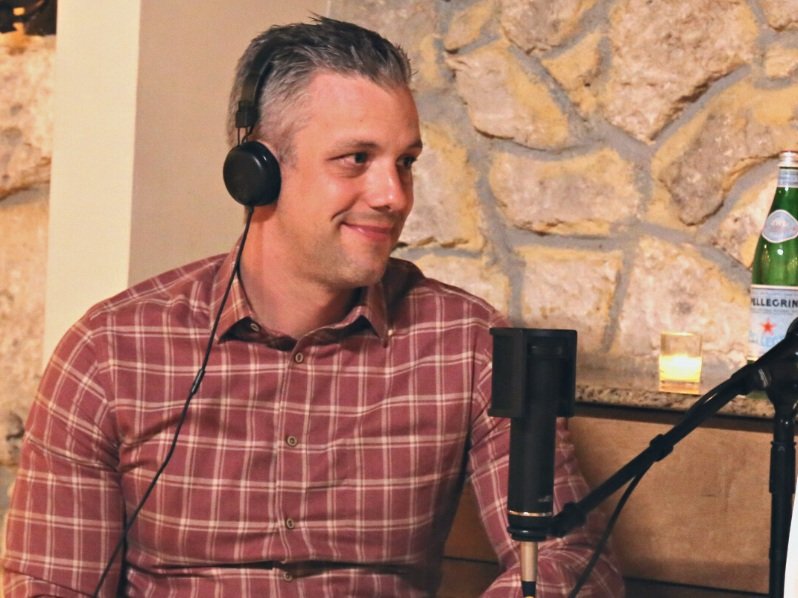The slimy sleight of hand of the Justice In Policing Act's qualified immunity provision

The killings of George Floyd, Breonna Taylor and Ahmaud Arbery sparked a wave of activism that — thanks in part to the fact that those protests coincided with the COVID-19 economic shutdown and the resulting spike in unemployment — has seen sustained engagement and participation from larger, wider swaths of people than just about any protest campaign in recent memory.
Among the issues that those three deaths have brought to the fore is the legal doctrine of qualified immunity. Over the last few weeks, I’ve written my representatives in Congress (with my concerned citizen hat on, not my journalist hat) to find out where they stand on qualified immunity broadly and, more specifically, Justin Amash’s Ending Qualified Immunity Act.
I live in Donna Shalala’s congressional district. Here’s the most recent email I got from her office.
I got this email from the office of congresswoman Donna Shalala when I wrote her asking about her position on qualified immunity and Justin Amash’s Ending Qualified Immunity Act.
The legal doctrine of qualified immunity was invented by the Supreme Court and, in a nutshell, makes it so that a government agent can't be found guilty in a civil suit of violating your rights unless the courts have found someone guilty before for violating someone's rights in exactly the same way, under exactly the same circumstances. This is why it's next to impossible to win in court not only against cops who kill or beat citizens when they shouldn't, but even against bureaucrats and other government employees who might violate your rights while on the job. In fact, Harlow v. Fitzgerald, the case that this doctrine (as it’s employed today) came from had nothing to do with police brutality.
Justin Amash (a Michigan member of the U.S. House and Congress’ only capital-L Libertarian) recently introduced The Ending Qualified Immunity Act in the House. The bill quickly picked up support from Democrats and, eventually, at least one Republican. The language of the bill is uncomplicated and unambiguous.
You can't find the text on Congress.gov yet, but Amash posted images of the full text on his Facebook page. The bill is admirable for, among other things, its simplicity. One narrow issue for people to take a side on. Simple language. No frills. No bullshit. No trickery. I don’t hesitate to say that I prefer anarchist flavors of libertarianism, but if we must have government, this is what it should look like.
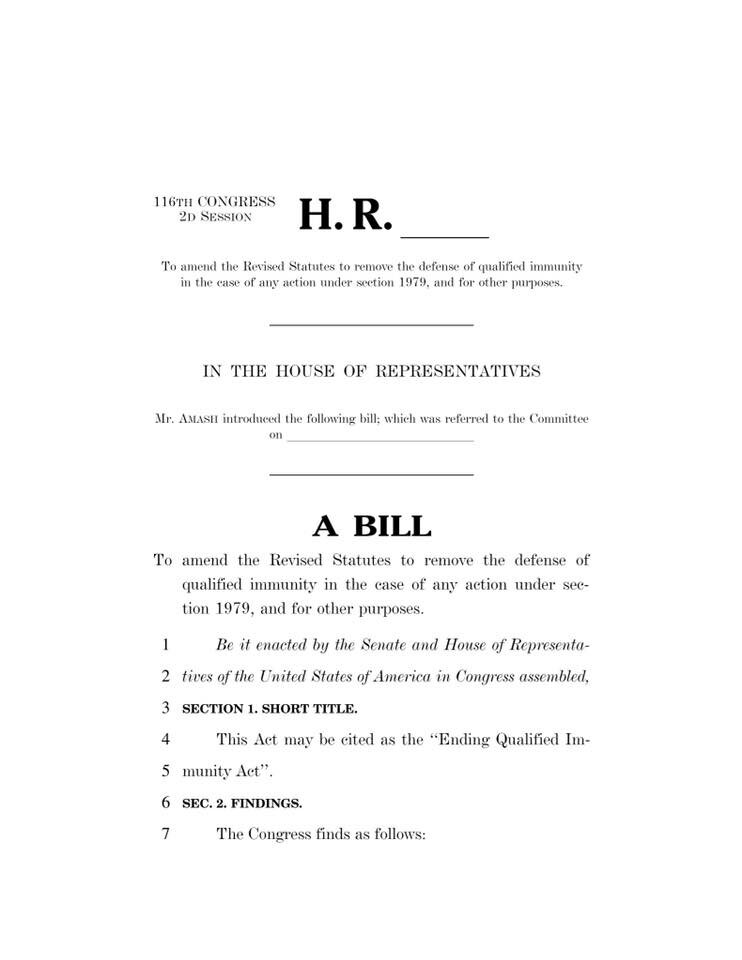
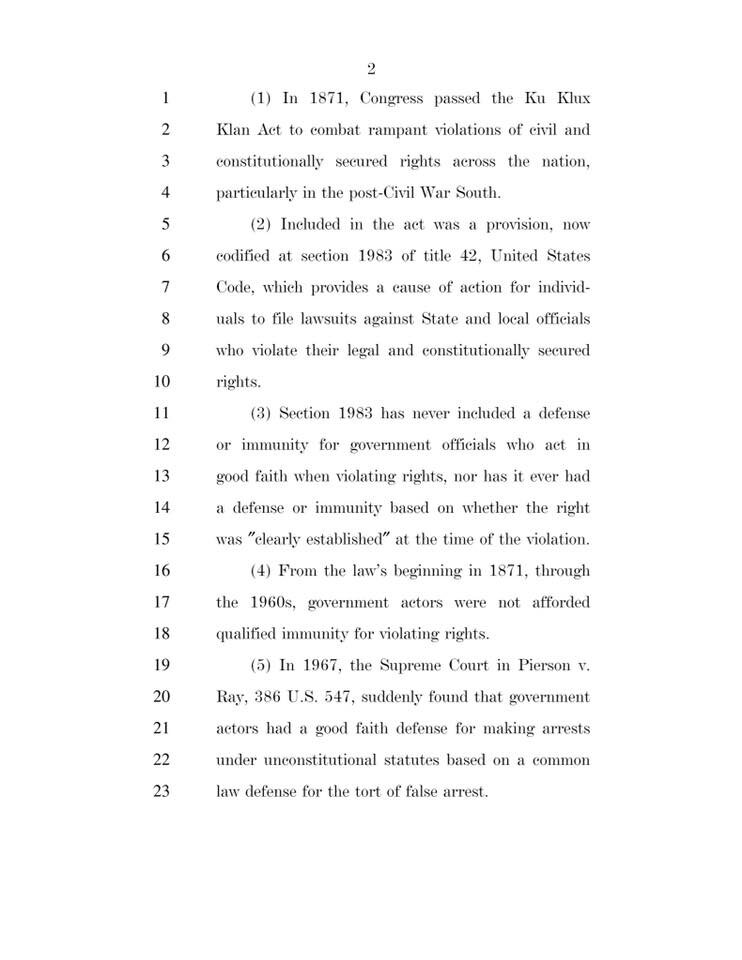
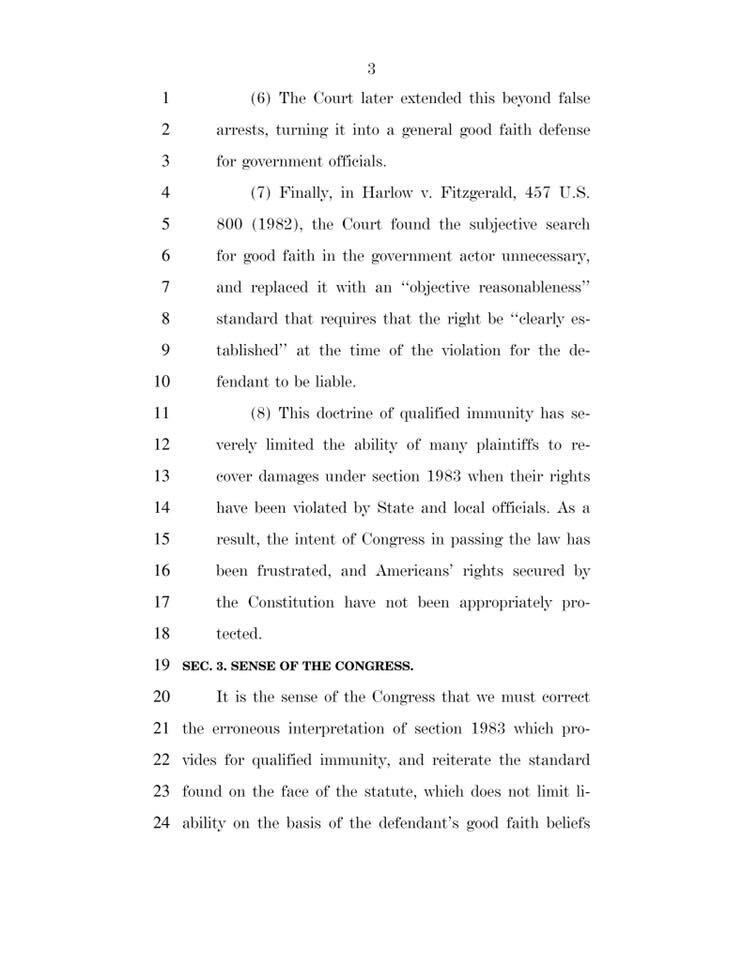
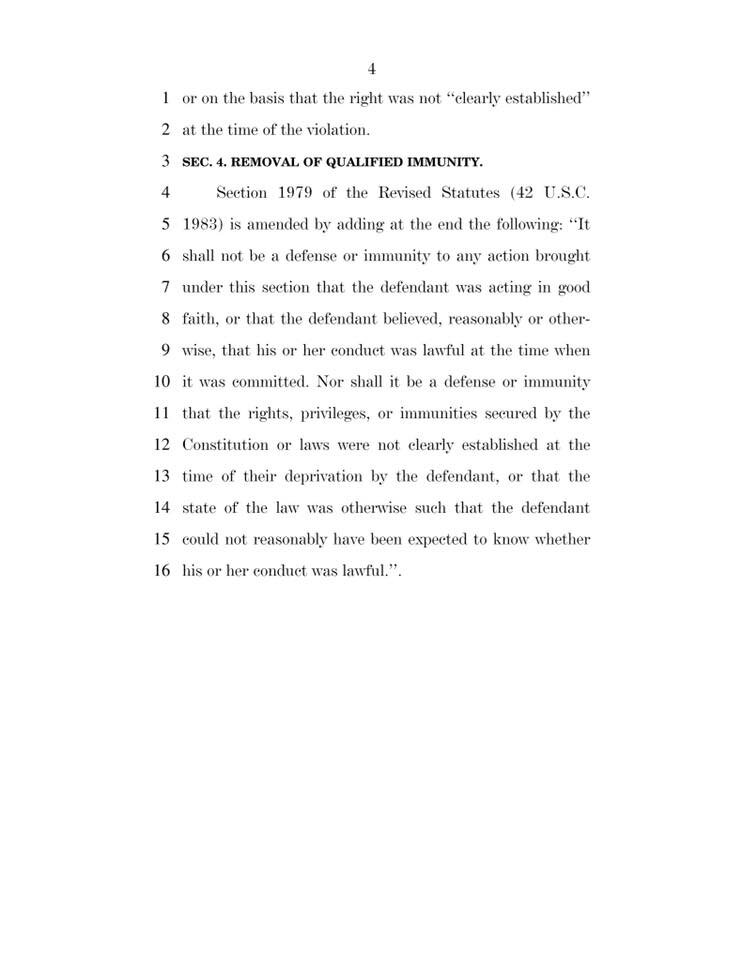
The Ending Qualified Immunity Act would make it so that qualified immunity is no longer a defense for "defendants." In other words, it ceases to be a thing that shields anyone in court no matter who they are or what government jobs they do.
Why is this so important?
When I wrote to my own congressperson, Donna Shalala, I got two emails (all of this is detailed in the post I linked to above). In the second email, Shalala's office told me that she was also concerned with "reforming" qualified immunity and would be supporting the Justice in Policing Act, which has provisions related to this legal doctrine in it.
It is true that Republicans tend to be far too cozy with police unions and far too eager to shield cops from the consequences of their bad decisions.
However, Republicans don't have a monopoly on shady intra-governmental cronyism. Shalala's letter to me treats it as a given that the dispositive language of the Ending Qualified Immunity Act has been folded into the Justice in Policing Act. And it’s fairly clear that that’s what the latter bill’s authors, as well as those advocating for passing it, want you to think too. But there's a slimy, sleazy political sleight of hand happening here. Here's the relevant language from the Justice in Policing Act of 2020.
SEC. 102. QUALIFIED IMMUNITY REFORM.
Section 1979 of the Revised Statutes of the United States (42 U.S.C. 1983) is amended by adding at the end the following:““It shall not be a defense or immunity to any action brought under this section against a local law enforcement officer (as defined in section 2 of the Justice in Policing Act of 2020) or a State correctional officer (as defined in section 1121(b) of title 18, United States Code) that—
“(1) the defendant was acting in good faith, or that the defendant believed, reasonably or otherwise, that his or her conduct was lawful at the time when the conduct was committed; or“(2) the rights, privileges, or immunities secured by the Constitution and laws were not clearly established at the time of their deprivation by the defendant, or that at this time, the state of the law was otherwise such that the defendant could not reasonably have been expected to know whether his or her conduct was lawful.”.
See what they did there? Don't be hard on yourself if you missed it.
Remember how the Ending Qalified Immunity Act refers to eliminating the qualified immunity defense for "defendants" in civil suits? In other words: every government agent? The Justice In Policing Act instead "reforms" the application of this legal doctrine rather than killing it by singling out some law enforcement officers.
"It shall not be a defense or immunity to any action brought under this section against a local law enforcement officer ... or a State correctional officer ..."
So while reformer heroes in Congress are happy to kill qualified immunity as a defense for local cops who violate your rights now that everybody’s protesting police brutality, they're not prepared to stop shielding federal law enforcement or even other agents of local government when they screw you, even when there’s a simple bill in front of them that would address this problem across all of government.
Want to sue someone in government for impeding your exercise of your right to vote? Were you unjustly denied the right to carry a weapon by your government? Did a spiteful government official revoke your business license and cost you money? Did a school violate your kid's right to express him or herself somehow? Were you discriminated against in the process of applying for a government contract? Were your privacy rights violated when government agents rifled through your records at a doctor's office without consent? Did an FBI agent beat the shit out of you or kill you when they shouldn't have? Did a member of Congress or their staff violate your rights somehow?
Well guess what. You can go fuck yourself. Shoulda gotten punched by a local cop instead.
Donna Shalala and others could make it so you can sue a government agent and have some reasonable expectation that you’ll recover damages if you can show your rights were violated by voting for the Ending Qualified Immunity Act. Instead of taking a position on that simple bill that fits into a short Instagram post and the meat of the law is one paragraph long, they've buried a far weaker qualified immunity provision in a bill that is more than 22,000 words long. And they’re counting on your not knowing the difference.
Sure, some lawmakers are afraid to upset police unions.
But what if the qualified immunity provision in the Justice in Policing Act is designed to protect every other public sector union and the members of Congress themselves from accountability?
Nicolás Antonio Jiménez is the founder of DADE. He’s always working through his rotation of writer, podcast host, podcast producer, photographer and editor hats.
A Miami native and graduate of the Missouri School of Journalism, Nick’s background includes work in democracy promotion, human rights advocacy, content marketing and magazine journalism (most recently as senior editor of Cigar Snob).

